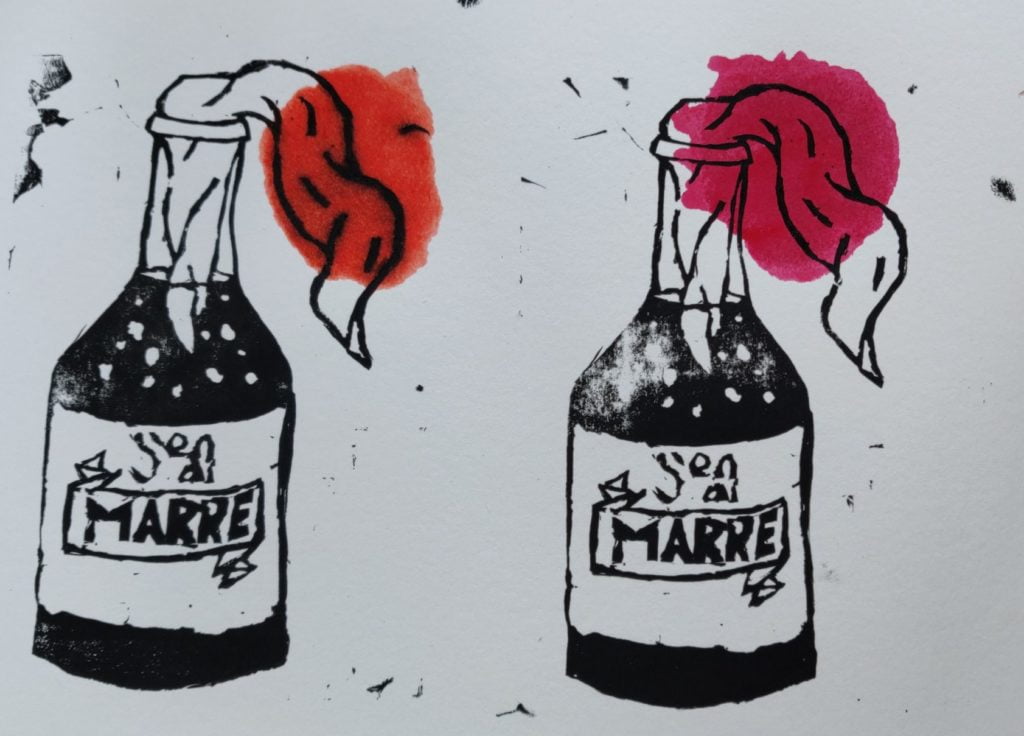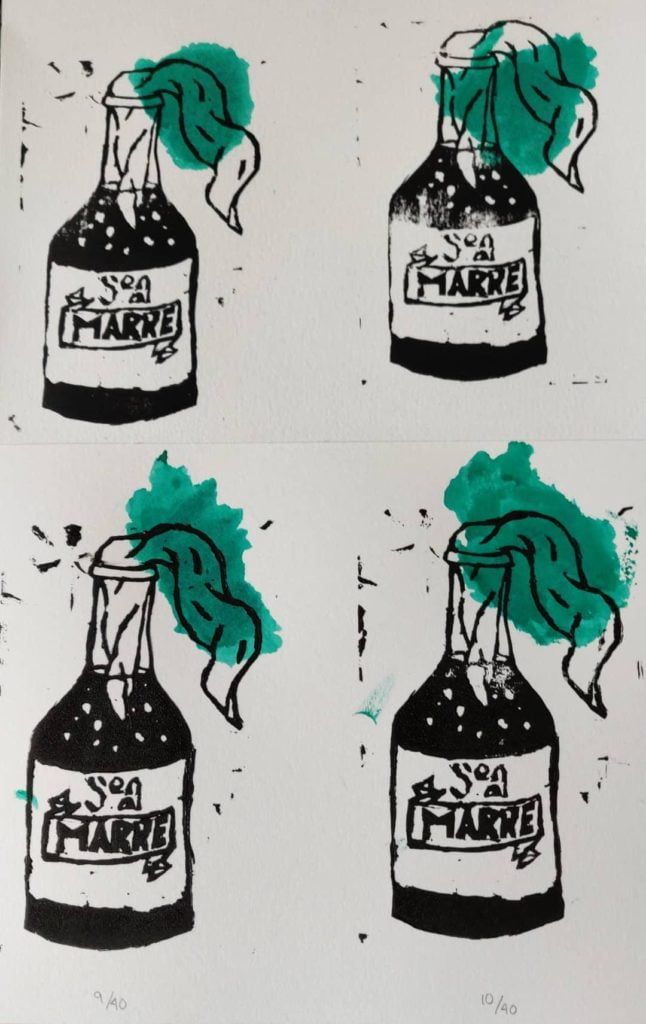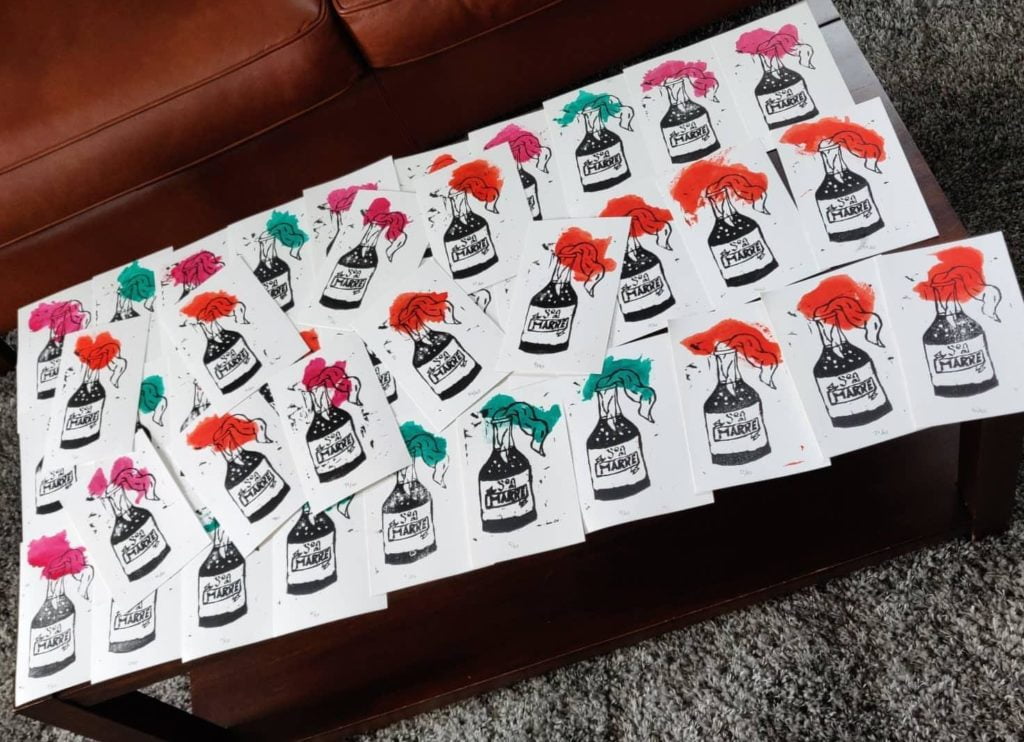Category: Culture
The stuff that makes life worth living.
I skipped April, it seems. Last year I spent the month trying to write poems (I’m actually ok with quite a few of them) and house hunting. This year I tried to keep it together managing work, home schooling, and the general malaise extremely low amounts of compassionate human contact and peripherally spiraling potential death engenders in the mind of a single father.
Finally got around to getting all the ingredients necessary to do some linocut printing. Now I just need more practice at drawing and carving.



40 Prints. Email me if you want one. 
A blue iris for my mom for Mother’s Day. 1/1
<J’en ai marre> basically means “I’m fed up”. Pretty decent start for not having done a linocut since I was in ninth grade 25 years ago. The iris was a gift to my mom for Mother’s Day.
If there’s one thing I’ve come to grips with in these last few weeks it is that no one is going to look out for me, and no one wants me to look out for them. This is a sad place to be — because it smells like the same kind of place that men’s rights activists and incels come from. At least now I can use the pandemic as an excuse for why I don’t make friends or go on dates.
I usually learn the wrong lesson.



